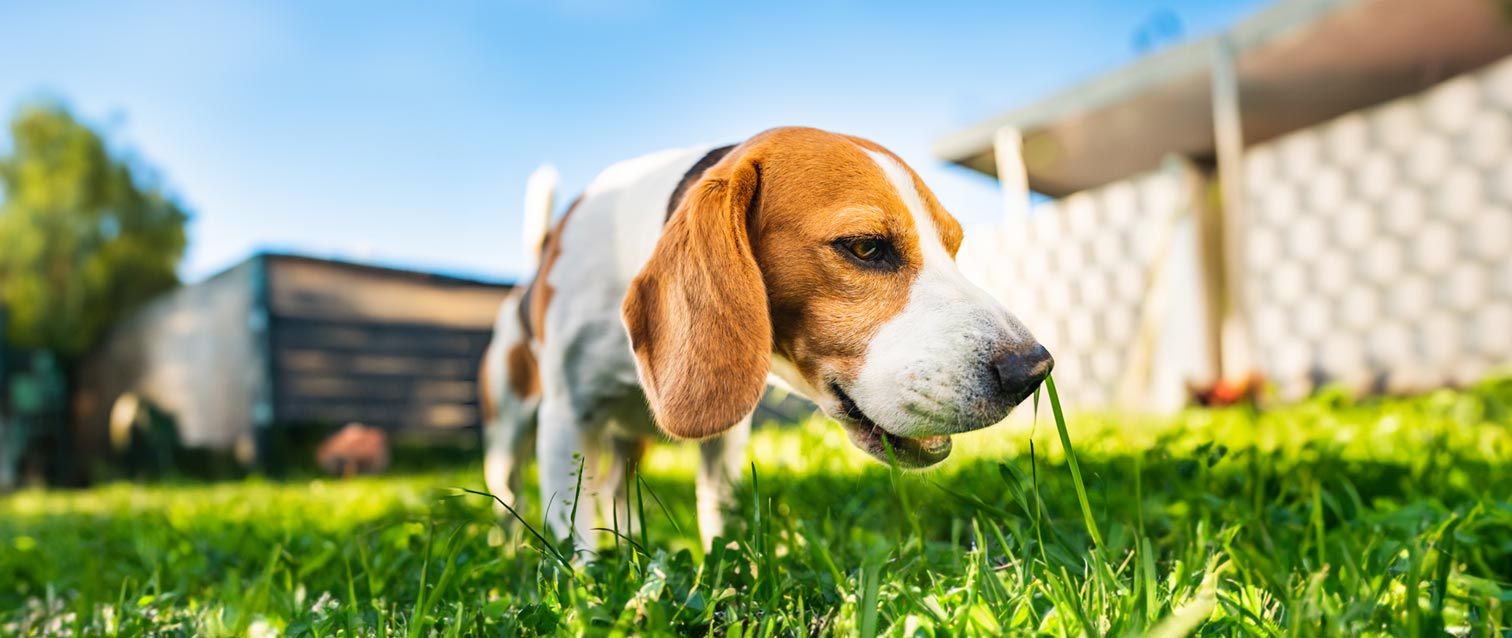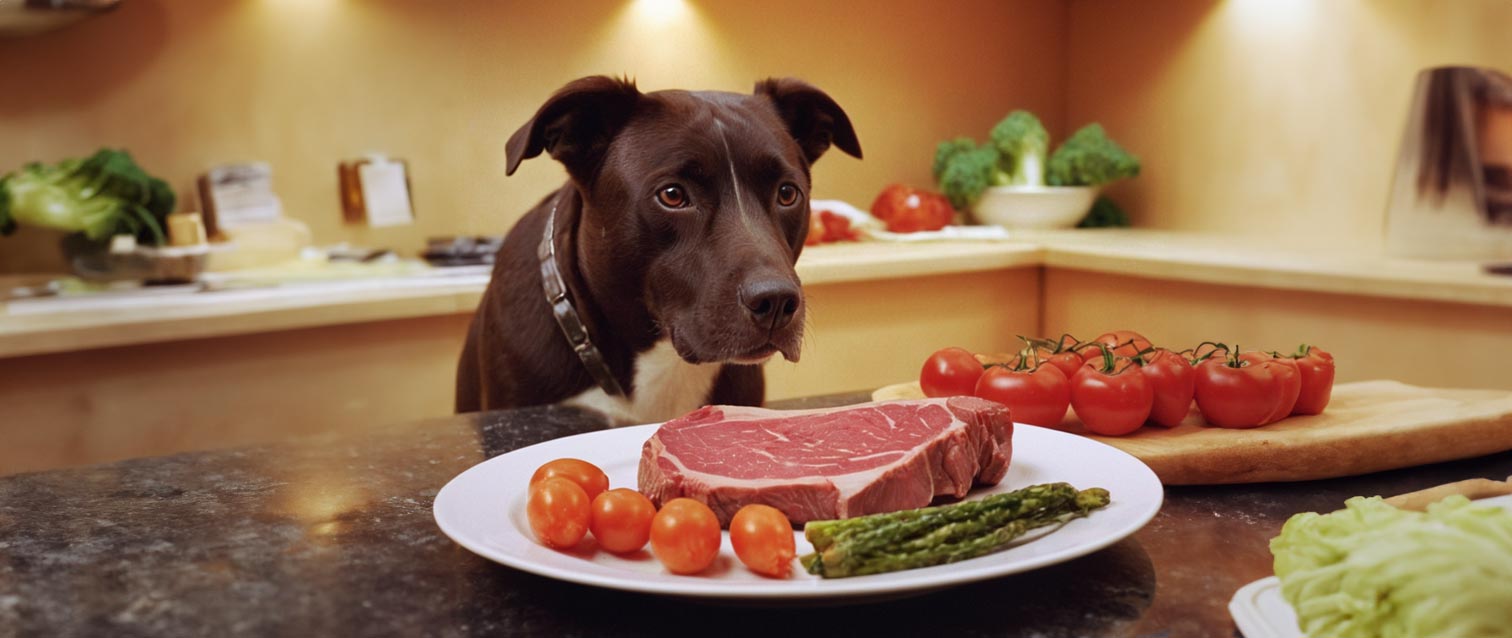
Why Do Dogs Eat Grass? Unveiling the Mystery Behind Your Pup's Green Snacking Habits
As summer approaches and you spend quality time with your furry friend, you might notice a peculiar behavior: your dog munching on grass. It's a common sight, but have you ever wondered why dogs engage in this intriguing habit? Well, let's uncover the reasons behind dogs eating grass, explore its safety implications, and discover practical steps to address this behavior.
-
The Tempting Taste, Grass as an Irresistible Delicacy: Did you know that some dogs find grass utterly irresistible, especially when it's young, green, and tender? The texture of grass offers a delightful contrast to their usual dry kibble or canned food. Dogs are natural scavengers, and their instinctual drive to search for food persists even with a balanced diet. So, when they're exploring the yard or accompanying you on neighborhood strolls, the fragrant blades of grass beckon them to indulge their taste buds.
-
Battle Boredom, Grass as a Pastime: Dogs, like humans, can experience boredom. When left alone in the backyard without much stimulation, some dogs turn to grass-eating as a way to pass the time. It may serve as a means to alleviate their boredom or seek attention from their owners. After all, who can resist rushing over to a concerned pup parent when their furry companion starts munching on grass? If your dog displays this behavior, it's a clear sign that they need more mental and physical stimulation.
-
Nutritional Needs, Exploring the Fiber Factor: Eating non-food items, known as pica, may indicate a deficiency in a dog's diet. Grass, being a good source of fiber, could help regulate their bodily functions. However, scientific evidence supporting this theory remains inconclusive. If you're concerned about your dog's diet, consulting your veterinarian for guidance on the most nutritious dog food options is the best course of action.
-
Upset Stomach Relief, Grass as an Ancient Remedy: Ancient dogs instinctively ate grass when feeling nauseous, as it induced vomiting and provided relief for their upset stomachs. This behavior has carried over to contemporary dogs, possibly as an evolutionary remnant. However, the exact relationship between eating grass and upset stomachs is still debated among experts. Some dogs also turn to grass when they're stressed, adding complexity to the picture. By observing your dog's specific behaviors and consulting with a veterinarian, you can gain insights into the underlying causes.
When to Be Concerned:
If you notice your dog eating grass and subsequently vomiting, don't panic. It's generally normal for dogs to engage in this behavior occasionally. However, continuous grass-eating followed by vomiting should raise concerns and prompt a visit to your vet. Abnormal behaviors should never be ignored, as they may indicate underlying health issues or dietary problems. Your veterinarian will conduct a thorough examination and potentially perform tests to ensure your dog's well-being.
Should You Allow Your Dog to Eat Grass?
In short, it's best to discourage your dog from consuming grass. While fresh, green grass may seem harmless, it could be contaminated with toxic chemicals if it's not from your own lawn. Additionally, grass contaminated with intestinal parasites from other dogs' droppings can pose health risks to your pet. Furthermore, certain house and garden plants are toxic to dogs if ingested. To ensure your dog's safety, it's crucial to prevent them from eating grass altogether.
Tips to Stop Your Dog from Eating Grass:
-
Train Your Dog to Ignore Grass: When out for a walk and your dog starts grazing, gently guide them in a different direction. Use verbal cues such as "sit" or "drop" to distract them, and reward their compliance with high-value treats. This positive reinforcement will redirect their attention away from grass and reinforce desired behaviors.
-
Keep Your Dog Busy: Provide your dog with ample mental and physical stimulation to prevent boredom. Offer rugged chew toys or interactive dog toys that dispense treats, keeping them engaged even when you're not around. Regular exercise and playtime are essential for a happy and content pup.
In Conclusion: Unraveling the mystery behind why dogs eat grass reveals a puzzle with multiple pieces. Whether it's a matter of taste, boredom, nutritional needs, or an upset stomach, addressing this behavior is crucial for your dog's well-being. Remember, it's not the grass itself that's harmful, but the potential contaminants and risks associated with it. By redirecting your dog's attention, providing mental and physical stimulation, and keeping them away from tempting grass, you can help them develop healthier habits.
At Underdog Plus, we believe in providing high-quality dog treats made with all-natural, locally sourced ingredients. Our products are carefully crafted to meet the nutritional needs of your beloved canine companion. We understand the importance of a balanced diet and are committed to supporting your dog's overall well-being. Join us in nourishing your dog with the finest ingredients and witness the remarkable difference it makes in their health and happiness.



